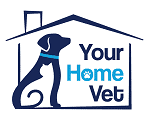There are several foods available on the market that are designed to be a puppy special nutritional needs. Until they are about six months of age, puppies require twice as many calories per pound than do adult dogs of the same breed. This amount can usually be reduced to about 1 1/2 times as much as the adult intake at six months. Puppies also require specific nutrients to grow properly and develop a strong brand, Keith, muscles, and organs. To obtain needed calories is usually recommended that the editors divide puppy rations into three or four meals a day until they are least half-grown. After that, the number of feedings can be reduced gradually until the dog is about-year-old. Sometimes small breeds do better with two small meals a day. Your veterinarian should also set up a feeding schedule based on the puppies breed, size, and rate of growth or weight gain. Ever feeding up puppies can cause severe problems by increasing their growth rate.
There are several vitamin and mineral supplements on the market. Most of these are in tablet form and are very appealing to dogs. Over supplementation can upset the adult nutritional balance, and giant breed dogs growing puppies, it can lead to severe problems with their bones.
All should have fresh water available at all times. As long as the water is open, dogs in good health will drink the proper amount of water to flush the waste from their bodies. Some medical conditions lead to over drinking.
Some people’s foods can make a dog sick and should be avoided. One of many people’s favorites, chocolate, is very attractive to dogs. They can make a dog very ill and, depending on the size and the amount of chocolate the dog eats, can even kill it. Another popular human food that is not good for dogs is onions. While his dog is not likely to consume a plain onion, it may give for a bit of leftover meat smothered and nine needs. Too many onions, raw or cooked, can damage adult red blood cells and cause them to burst. A class of foods to avoid for adult dogs or dairy products. Milk and cheese are often poorly digested by many adult dogs and may give them diarrhea.
It is complicated to recommend an exact amount of food to give a dog, and it is hard to say precisely how much exercise a particular dog should be required to receive also. One good measure to determine whether or not a dog is getting sufficient exercise is to assess her weight. A growing puppy needs no supplementary training and should be careful not to leave out a puppy to jump excessively. Large, heavy breeds especially are susceptible to joint and bone injuries if they are allowed to play too roughly or wildly. Sometimes sufficient exercise can help break most dogs of destructive behavior in the house. Many dogs, especially small ones, seem to be always on the move. They run around the house a lot and get quite a bit of exercise that way. In general, dogs with short legs, such as toxins, tiny toys, can get enough exercise just running around the yard, or on a short walk. Larger breeds need a lot more rigorous, daily training to stay in shape. So no matter what type of pet for sale you are looking for considering all these options and speak with your vet.




